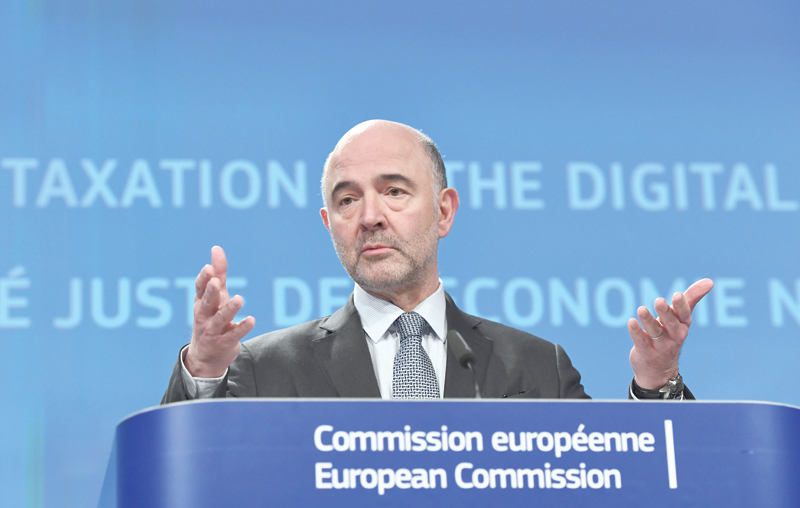

Brussels: The EU unveiled proposals for a digital tax that targets US tech giants, heaping more problems on Facebook after revelations over misused data of 50 million users shocked the world. The special tax is the latest measure by the 28-nation European Union to rein in Silicon Valley giants and could further embitter the bad-tempered trade row pitting the EU against US President Donald Trump.
EU Economic Affairs Commissioner Pierre Moscovici presented his proposals in Brussels aimed at recovering billions of euros from mainly US multinationals that shift earnings around Europe to pay lower tax rates.
“This current legal vacuum is creating a serious shortfall in the public revenue of our member states,” France’s Moscovici told a press conference in Brussels.
“We estimate this could generate at least five billion euros a year if the tax is imposed at three per cent.”
Moscovici insisted it was “not an anti-GAFA tax nor an anti-US tax”, referring to the popular acronym for Google, Apple, Facebook and Amazon. The transatlantic blow has been championed by French President Emmanuel Macron and will be discussed over dinner at an EU leaders summit .
The unprecedented tech tax follows major anti-trust decisions by the EU that have cost Apple and Google billions and also caught out Amazon.
The EU tax would affect revenue from digital advertising, paid subscriptions and from “sale of data generated from user-provided information”, the European Commission said.
The tax lands as EU agencies are also set to tighten rules on data privacy, targeting tech firms. The issue has come to the forefront following revelations that a firm working for Trump’s US presidential campaign harvested data on 50 million users of Facebook. The EU tax plan will target mainly US companies with worldwide annual turnover above 750 million euros ($924 million), such as Facebook, Google, Twitter, Airbnb and Uber.
Spared are smaller European start-ups that struggle to compete with them.
Brussels is seeking to choke tax-avoidance strategies used by the tech giants that, although legal, deprive EU governments of billions of euros in revenue. Under EU law, firms like Google and Facebook can choose to book their income in any member state, prompting them to pick low-tax nations like Ireland, the Netherlands or Luxembourg.
The European Commission estimates that digital businesses pay an average effective tax rate of just 9.5 per cent, compared with the 23.3 per cent paid by traditional companies.
These numbers are, however, disputed by the tech giants, which have criticised the tax as a “populist and flawed proposal”.
“The proposed turnover tax aimed at online platforms is discriminatory and ignores the global consensus that the so-called ‘digital economy’ should not be singled out,” said Christian Borggreen of the Computer & Communications Industry Association. — AFP
Oman Observer is now on the WhatsApp channel. Click here



